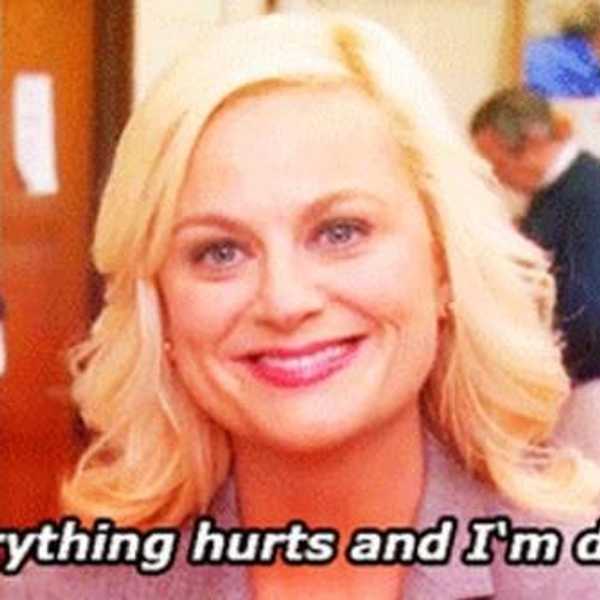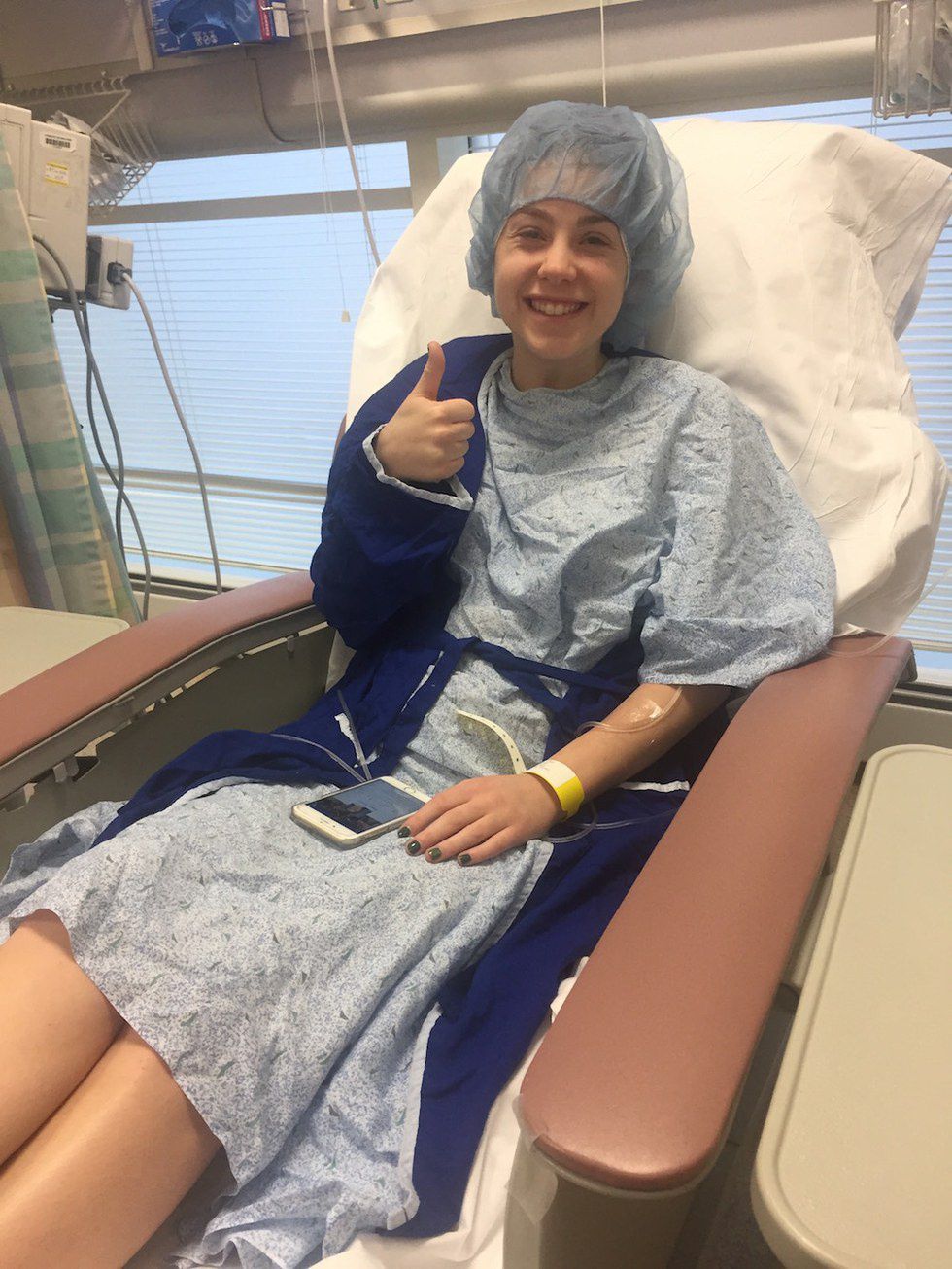Good old wisdom teeth. Not everyone has them, but it's a surgery most everyone is quite familiar with. Now, I don't mean everyone knows the procedure on how to go in and surgically remove them, but when you hear the words wisdom teeth, we tend to automatically associate the words with those funny videos of kids completely out of it — in an almost "drunk" fashion — yelling, singing and dancing while high on anesthesia and pain meds. While these videos are entertaining and give everyone a good laugh, believe it or not, this isn't exactly how all wisdom teeth surgeries tend to go.
According to Scienceline.org, wisdom teeth, which are also known as your third set of molars were helpful in ancient history when our diets included tougher food items like roots, leaves, nuts and meats. A person can have up to four wisdom teeth and they usually don't cause any problems. But as humans have adapted to modern society and our diets have changed, we've lost the need for these molars. Even if these non-essential teeth don't hurt us, oral surgeons still recommend getting them removed for many reasons. Doctors want to prevent any further issues from occurring in the future, some patients have too small of mouths for them to fit in, and others have wisdom teeth that are impacted; meaning they come in upside down or sideways and are lodged in your jawbone.
When I first got my x-ray done and found out I had only two wisdom teeth — both on the same side of my mouth — I felt relieved. Two is better than four right? That had to mean an easier, faster recovery time and a surgical procedure that would be super quick. Well, boy was I wrong.
In the weeks prior to my surgery, my oral surgeon advised me to refrain from telling people I was going to be getting my wisdom teeth out. I questioned him on why he said this, and his response was "everyone has a horror story about their wisdom teeth. It's just going to freak you out." Naturally, I walked out of the office live-tweeting about how I had to get my wisdom teeth out, told a bunch of people about it, and if you could believe it, my surgeon was right. I heard terrifying stories of people bleeding, vomiting, hallucinating, and one friend who was only able to eat feta cheese for a week. Others recovered in a few days and had no issues, so I took these stories with a grain of salt. Everyone's different, I thought.
As the date moved closer and closer I felt excited and nervous. I've never had a major surgery before. I had been under anesthesia just once and it was only for 15 minutes. I've never broken a bone, I have a very low pain tolerance, and a HUGE fear of needles. (I work at a hospital and I'm learning to be less afraid). My biggest fear was just getting the IV without passing out.
The morning of, I woke up at 6:30 a.m., put on a new pair of sweats I'd been waiting to wear for the occasion (forgot you have to change and wear a gown), grabbed my insurance card and ID, and headed for the hospital with my dad and grandma. When I'm nervous I tend to talk a lot so I'm sure my dad's ears were ringing by the time we pulled in. I took an interest in the board in the waiting room that announces doctors' arrival times and patients' progress in surgery. They're similar to screens at the airport that let you know if your flight is on time.
The nurses called my name and had me change into two gowns — business-in-the-front and party-in-the-back gowns. I also sported some extra large socks and a beautiful hair net/shower cap. While in my new fancy get-up, I was moved into the pre-op area where I sat in a chair and was asked a series of questions by a wonderful nurse. Once I warned her of my fear of needles she put in my IV (I didn't pass out!) and we were on our way.
I somberly walked into the OR with my nurse. The anesthesiologist looked eerily similar to Christina Yang from Grey's Anatomy so I knew I was in good hands. Before I knew it, I was out.
An hour later I woke up, or rather, my mind woke up. My body did not.
This is known as anesthetic awareness — it happens to about 1 in 19,600 patients. So, lucky me? What happened was terrifying. My eyes were closed but I couldn't breathe. They were still taking the tube out from my throat but I couldn't do anything. I was trying to scream out that I couldn't breathe and I couldn't feel my legs. I was trying to move my body and yell and gasp for air but nothing seemed to work. It was like a living nightmare. Finally, an oxygen mask covered my face and I regained consciousness and could move again. I had wonderful (and I mean wonderful) nurses by my side holding my hand and comforting me. They truly made the experience so much better.
After the scary part, the fun feeling kicked in for a few minutes. Because I thought I was paralyzed, I was yelling for the doctors to page Dr. Shepard and Dr. Grey because they would know what to do. I apologized to the nurses for looking like what I described as "an ugly sad potato." It was fun for a while but then I started to react poorly again to the anesthesia. I felt super sick and my anesthesiologist (a.k.a. Christina Yang), came back in to give me a needle reversing the effects, along with many doses of anti-nausea medicine.
A typical patient's operation takes about an hour and a half, two hours at most. I, a person who has the worst luck and is always difficult, was there for 8 hours trying to recover.
I don't want to scare you into thinking this will happen to you because odds are it won't. One in every 19,600 people is still pretty rare. Other factors made my recovery more difficult than others. I suffer from TMJ and TMD, jaw disorders that regularly cause locking of the jaw and serious pain. Keeping my mouth open for an hour-long surgery is the prime reason my recovery was so painful. My jaw just couldn't handle it.
But never fear, I'm still here. Despite the pain, I'll make a full recovery. I make a corny joke about how I'm a little less wise... *crickets*... because the wisdom teeth are gone... no... nobody? The truth is, I learned a lot from this surgery. I'd never experienced pain like this, so it allows me to be much more empathetic to the patients I work with. I can truly understand their fear and concerns now and try to help explain to them how to work through it. I learned that even if you're a pain-in-the-butt patient like me, nurses are still going to help you and take care of you. Maybe this wasn't the ideal way to spend Christmas break, but who can complain about tons of free ice cream?






















